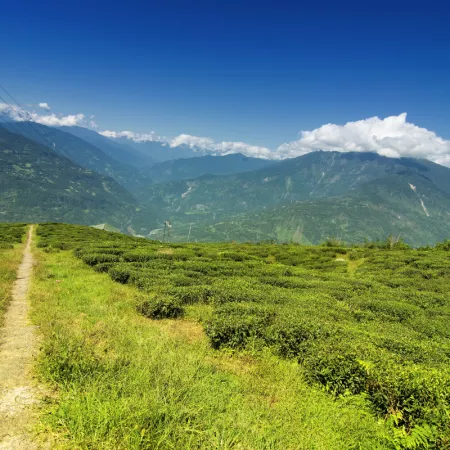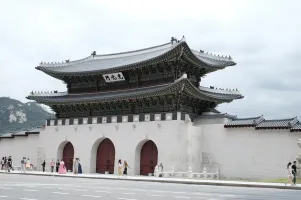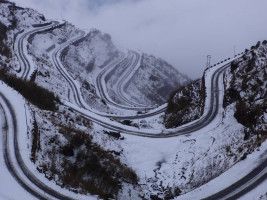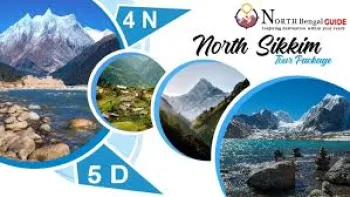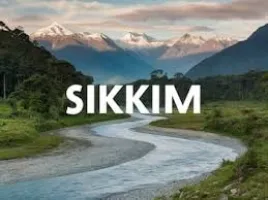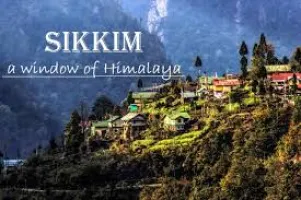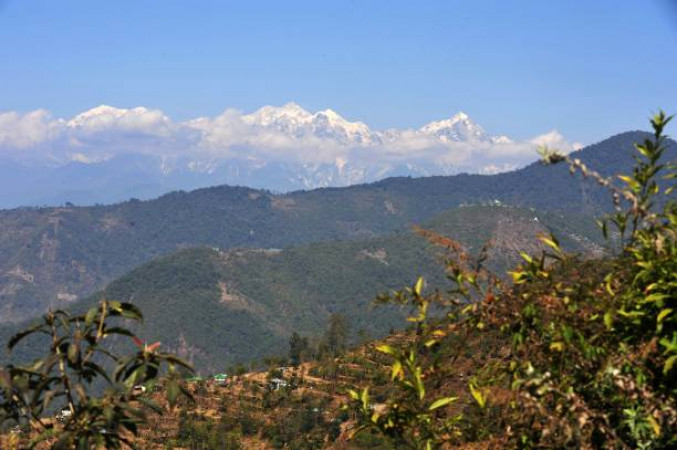
South Sikkim
Package
6200 to 8000
6200 to 8000
Duration
3 to 5 Days
3 to 5 Days
Best time to visit
Mar-May, Oct-Nov
Mar-May, Oct-Nov
Theme
Hill Station, Adventure, Religious, Wildlife
Hill Station, Adventure, Religious, Wildlife
South Sikkim Travel Guide
South Sikkim, located in the northeastern part of India, is a mesmerizing destination known for its stunning landscapes, rich culture, and vibrant history. This region is famous for its picturesque views of the Himalayas, lush green valleys, and serene monasteries. The area is a melting pot of different cultures, with influences from Tibet, Nepal, and Bhutan, making it a unique and diverse travel destination.Top Attractions in South Sikkim
- Ravangla
- Namchi
- Maenam Wildlife Sanctuary
- Tendong Hill
- Samdruptse Monastery
South Sikkim is Famous for
Breathtaking views of the Himalayas and serene monasteries.Top Attractions in South Sikkim
- Explore the enchanting beauty of Ravangla
- Visit the towering statue of Guru Padmasambhava in Namchi
- Experience wildlife at Maenam Wildlife Sanctuary
- Trek up Tendong Hill for panoramic views
- Marvel at the grandeur of Samdruptse Monastery
What's Great about Travelling to South Sikkim?
- Perfect for nature lovers and adventure enthusiasts
- Offers a peaceful retreat away from the hustle and bustle
- Opportunity to immerse in Buddhist culture
What's Not So Great about Travelling to South Sikkim?
- Limited modern amenities in remote areas
- Challenging terrain for those with mobility issues
- Weather can be unpredictable, affecting travel plans
Travel Tips for South Sikkim
- Obtain necessary permits for restricted areas
- Pre-book accommodations, especially during peak season
- Respect local customs and traditions
Important South Sikkim trip information
- Ideal Duration: 5-7 days to explore the region thoroughly
- Best Time to Visit: March to May and October to December for pleasant weather
- Nearby Airports and Railway Stations: The nearest airport is Bagdogra Airport and the closest railway station is New Jalpaiguri Railway Station
Top 7 Places to visit in South Sikkim
Per Person
51,599
*EXCLUDING APPLICABLE TAXES 5.0 Ratings
( 26 Reviews )
( 26 Reviews )
Per Person
3,50,000
*EXCLUDING APPLICABLE TAXES 5.0 Ratings
( 79 Reviews )
( 79 Reviews )
Per Person
16,500
*EXCLUDING APPLICABLE TAXES 4.8 Ratings
( 253 Reviews )
( 253 Reviews )
Per Person
10,250
*EXCLUDING APPLICABLE TAXES 4.8 Ratings
( 37 Reviews )
( 37 Reviews )
Per Person
14,400
*EXCLUDING APPLICABLE TAXES 4.8 Ratings
( 37 Reviews )
( 37 Reviews )
Per Person
35,200
*EXCLUDING APPLICABLE TAXES 4.8 Ratings
( 37 Reviews )
( 37 Reviews )
FAQ's on South Sikkim
Q1: What is the best time to visit South Sikkim?
The best time to visit South Sikkim is from March to May and October to December. During these months, the weather is pleasant, and you can enjoy clear skies and beautiful views of the Himalayas. Avoid the monsoon season from June to September due to heavy rainfall that may disrupt travel plans.
Q2: Do I need a visa to travel to South Sikkim?
As a part of India, South Sikkim follows the same visa regulations. Most foreign visitors need a tourist visa to enter India, which can be obtained online or through the nearest Indian embassy or consulate. Some countries are eligible for visa-on-arrival. It's essential to check the specific requirements based on your nationality before traveling.
Q3: What are the must-visit attractions in South Sikkim?
South Sikkim is known for its stunning landscapes and cultural sites. Must-visit attractions include the serene Tsomgo Lake, the historic Rabdentse Ruins, the picturesque village of Ravangla, and the sacred Tendong Hill. Adventure enthusiasts can explore Maenam Wildlife Sanctuary and the beautiful Temi Tea Garden.
Q4: Is South Sikkim a safe place to travel?
South Sikkim is generally safe for tourists. However, it's advisable to be cautious in remote areas and follow local advice. Avoid trekking alone in isolated regions and respect the customs and traditions of the local communities. It's recommended to stay updated on weather conditions and road closures, especially during the monsoon season.
Q5: What is the local currency in South Sikkim and can I use credit cards?
The local currency in South Sikkim is the Indian Rupee (INR). While credit cards are accepted in some hotels and larger establishments, it's advisable to carry cash for smaller purchases and in rural areas. ATMs are available in major towns like Namchi and Ravangla, but it's recommended to have sufficient cash on hand.
Q6: What is the local cuisine like in South Sikkim?
South Sikkim offers a diverse culinary experience influenced by Nepalese, Tibetan, and Indian flavors. Try local delicacies like Momos (dumplings), Thukpa (noodle soup), Phagshapa (pork with radish), and Chhurpi Soup (cheese soup). Vegetarian options like Gundruk and Sinki are popular. Don't miss tasting the traditional Sikkimese tea, Chhang (local millet beer), and Chaang (fermented barley beer).
Q7: What transportation options are available in South Sikkim?
In South Sikkim, travelers can access public buses, shared jeeps, and taxis for inter-city transportation. Private taxis and rental cars are also available for more flexibility. The terrain can be challenging, so it's recommended to hire a local driver familiar with the roads. Shared jeeps are a common mode of transport for reaching remote areas and nearby attractions.
Q8: Are there any cultural norms or etiquette I should be aware of when visiting South Sikkim?
When visiting South Sikkim, it's important to respect the local customs and traditions. Greet people with a warm "Namaste" and remove your shoes before entering homes or temples. Dress modestly, especially when visiting religious sites. Always ask for permission before taking photographs of locals. Avoid public displays of affection, and be mindful of waste disposal to protect the pristine environment. Engaging with the local community in a respectful manner will enhance your travel experience.
Q9: I am a travel agent. How can I buy travel leads of South Sikkim?
Register yourself as a travel agent at agents.tripclap.com and then you can buy travel leads to South Sikkim once your account is approved. For more details contact our support team at +91-8069186564 or support@tripclap.com
